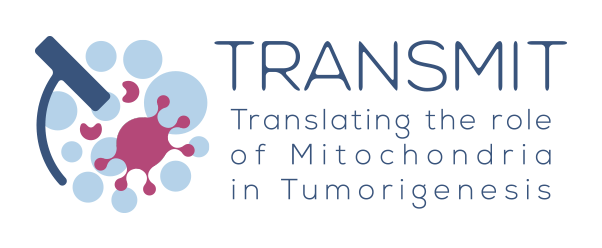Inducing pseudonormoxia as adjuvant therapeutic strategy for cancer (ESR 9)
Project Description
1) Job Summary. The candidate will be enrolled in a PhD program to work in cellular and molecular biology, learning and exploiting biochemical, molecular and biology techniques. Starting from the knowledge of the interplay between respiratory complex I and HIF1a, the candidate will investigate how the unbalance of αKG/SA ratio can mimic a normoxic condition causing HIF1α destabilization, and thus, prevents hypoxic adaptation and metabolic reprogramming. In collaboration with other consortium partners and through secondments, the candidate will acquire knowledge of specific techniques to tackle the issues proposed. Collateral skills will be developed during the 3-year fellowship, such as grant and paper writing, fund raising abilities, outreach and dissemination in the field of molecular oncology.
2) Job description: Application refers to an Early Stage Researcher (ESR) position to be trained for 36 months at the Department of Pharmacy and Biotechnology, University of Bologna, in the framework of the TRANSMIT project entitled “Inducing pseudonormoxia as adjuvant therapeutic strategy for cancer” (ESR 9). Supervisor: Prof. Anna Maria Porcelli.
It has been demonstrated that complex I-defective cancer cells display an increased α-KG/SA ratio that activates PHDs and leads to a pseudonormoxic state where HIF1α is destabilized even during hypoxia. Thus, CIdeficient cancer cells are not able to acquire a HIF1α-dependent Warburg profile and their tumorigenic potential is markedly inhibited both in vitro and in vivo. These findings highlight a functional link between HIF1α stabilization and mitochondrial function opening to new therapeutic approaches for most solid cancers. Hence, the idea of a metabolic-based approach as adjuvant therapy represents a promising strategy against cancer, whose malignant progression is supported by adaptation to a hypoxic environment. In this context, ESR will prove that cell-permeable α-KG ester derivatives prevent tumor progression by inducing a pseudonormoxic state specifically in cancer cells. To achieve this goal, ESR will collect a panel of cancer and non-cancer primary cell lines deriving from the same tissue. Since 2D monolayer cell cultures are not representative of the complexity of 3D solid tumors, ESR will generate 3D culture models that will be characterized in terms of mitochondrial function, HIF1α status and tumorigenic features in vitro. Then, the toxicity of an already available library of fifteen cell-permeable α-KG ester derivatives will be evaluated. The effect of these compounds on PHDs activity and HIF1α stabilization and activation will be determined. Moreover, ESR will prove the ability of α-KG derivatives previously selected to modulate xenografts formation after injection of cancer cell lines in nude mice.
Principal Investigator: Prof. Anna Maria Porcelli
ESR 9: Houda Abla
Key personnel:
Dr. Luisa Iommarini, Senior Post-Doc fellow
Dr. Anna Maira Ghelli, Assistant Professor

